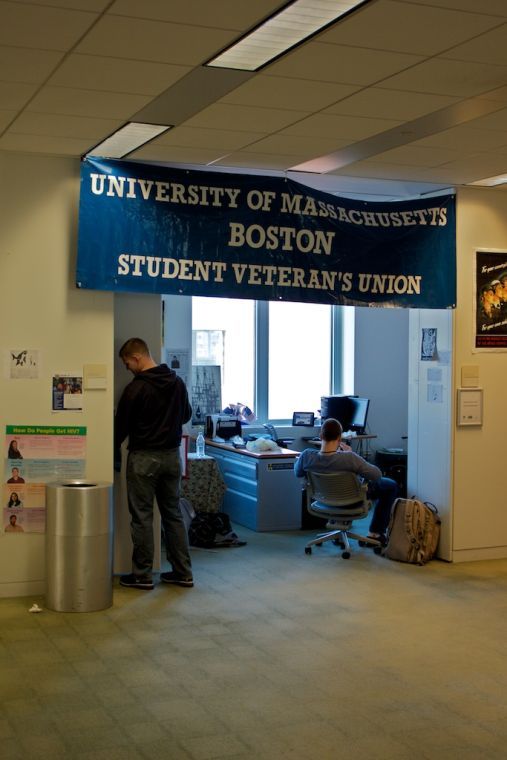The veteran presence at the University of Massachusetts Boston is substantial — roughly 500 persons and growing. The Student Activity’s Student Veterans Union (SVU) has a collective 75 members of the previously mentioned 500, of which only about 20-30 muster the availability to gather on a regular basis.
One thing that I have noticed as the coordinator of the SVU is that new members are often uninformed about our presence on the third floor of the Campus Center, or are turned away by the unavoidable close-quarter interactions among the present members, as is forced upon us due to a lack of space to accommodate numerous guests and visitors to the center.
One thing that I would like to see is a more diverse and collaborative veterans space on campus that incorporates all of the veterans service needs in one location. This would entail a reallocation of governmental funds brought in by the veteran population which could be set aside for the creation of a “One Stop” for veteran needs.
Combining the SVU, Department of Veterans Affairs/Vocational Rehabilitation, Joiner Center and ROTC into one large space would allow every veteran to have services geared towards their success situated in one single, easily accessible location.
With veteran unemployment, homelessness and suicides all increasing at an alarming, exponential rate, it is the responsibility of all the citizens that they have defended to afford them every chance to succeed and find support networks that have their best interests at heart.
Coupled with the spirit of solidarity from other veterans on the road to success, we, the faculty and staff of UMass Boston, are undoubtedly charged with the responsibly of doing everything in our power to help these heroes avoid falling through the cracks.
Being that the veteran population is a rather patient one, time is on our side. Nevertheless, if we wait too long, in the fight for the futures of those who were willing to sacrifice theirs for ours, we may lose the hopes, dreams and lives of our veteran population.
A master plan that can fix the problem, instead of papering over the cracks, is the only acceptable avenue of approach in the formation of a lasting veterans center. We are asking that no hasty decisions be made, but that a lasting one is.
We are here to help them learn a new profession, and to acclimate to the life they put on hold for all our sakes. The least we can do is facilitate them in their endeavors. UMass Boston has the ability to be a shining example to the world of academia, let us let that opportunity pass by.

